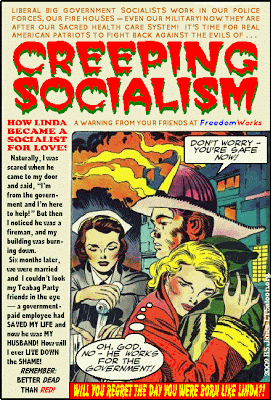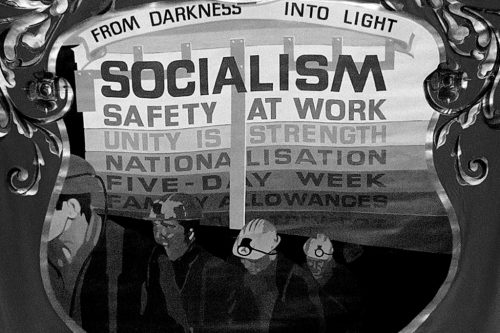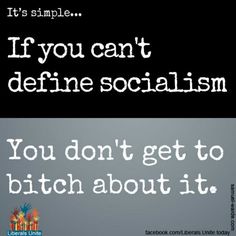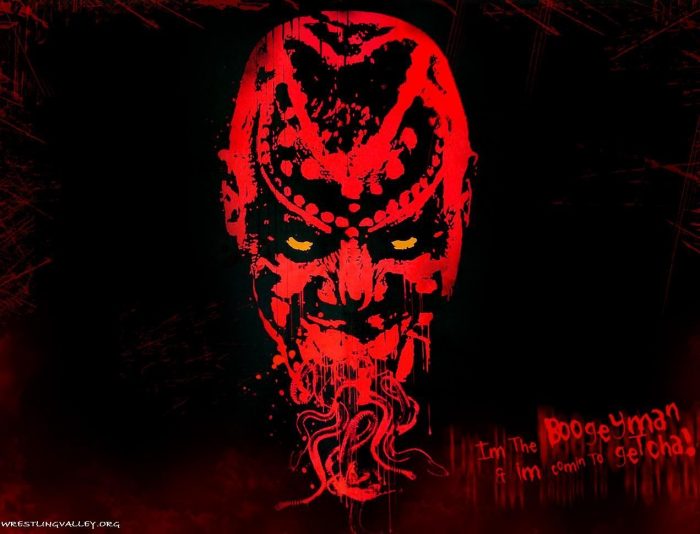If you want to kill a project, make well-intentioned people tremble with shame or send them flying to seek solace in something less intimidating than a political debate, just mention the word, “socialism”. The word has more leverage than “bleeding heart”, ruffles more feathers than a fox in a hen house and generates more fear than the Walking Dead.
Top economists don’t talk about socialism favorably. You will not hear Fortune Five Hundred extolling the virtues of a socialist country increasing their Gross Domestic Product while improving the general well-being of its constituents. They are only interested in the individuals who made the most money. Nor do the leading news media outlets pay much more interest to socialism than to mutter a few words regarding the news in socialist countries. You will not learn anything about socialism at all through the news, except a triumphant announcement when a social program fails.
Socialism will Control Every Aspect of My Life
During the teeth-chattering days of the Cold War, one of the greatest fears was that a Socialist State would remove our rights to pursue our own interests, assign us our occupations and send our children to State-run daycare facilities. Back then, they didn’t have both parents working to produce a quality standard of living and running a hundred thousand dollars into debt in a bid for higher education. Right about now, these working couples probably only wish the state would provide affordable day care. The current mantra of today is “any steady job is a good job”. So much for selectivity.
Back then, a clear distinction was placed between a Socialist and a Communist. It was fine to be a Socialist as long as you were an academician, an actor or lived in a foreign country. It was a sign that you were open-minded and had a great many deep thoughts concerning racial and gender equality and the solutions for poverty.
Communism, the terrifying enemy of the free world, is largely regarded as a failed experiment. It’s a noble ideal, one that places the product of labor directly into the hands of the worker, the natural resources into the hands of the inhabitants and provides an equal standard of living for all the members of the community.
Communism in its purest form, relies on the assumption that everybody desires the same, altruistic state. As a species, however, our personalities are as individually stamped as our finger-prints. Some of us like to feel like princesses, some like stallions. Some people are very humble. Some like to nibble a bit more than their fair share. There are people who feel an impulse to move counter-clockwise when everyone else is moving clock-wise. There are people who are greedy, people who are envious and people who are just down-right anti-social.
Most of all, there are people who are competitive. This is the character trait that unravels the ideals of pure communism. It can only work as a voluntary option. If communism is forced, only the strongest and most competitive make their way to the top. This has resulted in some very tyrannical practices within countries that were trying to orchestrate all its members into listening to one drummer.
Socialism is Bizarre
 Socialism is a largely misunderstood word, primarily because it was effectively used in the twentieth century for rallying workers. Some of the countries that tacked “Socialist” into their names weren’t very nice in the aftermath of their revolutions, with worse dictators than the ones they overthrew. For some, socialism represents the horrors of Nazi Germany, who created an inclusive Utopian society for themselves at the expense of others, or the regime of Kim Jong Un, who leans rather favorably on the side of tyranny. A twisted view of inclusive socialism prompted scientists in 1940’s Germany and Japan to perform macabre experiments on human subjects in the interests of advancing psychology and medicine.
Socialism is a largely misunderstood word, primarily because it was effectively used in the twentieth century for rallying workers. Some of the countries that tacked “Socialist” into their names weren’t very nice in the aftermath of their revolutions, with worse dictators than the ones they overthrew. For some, socialism represents the horrors of Nazi Germany, who created an inclusive Utopian society for themselves at the expense of others, or the regime of Kim Jong Un, who leans rather favorably on the side of tyranny. A twisted view of inclusive socialism prompted scientists in 1940’s Germany and Japan to perform macabre experiments on human subjects in the interests of advancing psychology and medicine.
In his parody of life as we know it, L.M. Warren takes the extreme scientist and places her in a position of power as her country’s leader, in his book, “the Saint of Science”, second in his “the End of the Magical Kingdom” series. Positive she knows all the solutions to creating a highly socialized society, she eradicates religion and sets out to end racism through genetic engineering. It scoots to the bizarre, fanatical end of Socialism as the Saint of Science strives to create equality through mutations and behavioral modifications. Extremism can be applied to any political or religious belief system and is not the unique property of socialism.
You Would Fear Socialism if You were a Business
Big Business does what it is allowed to do as ethics do not seem to be one of its strong points. The bigger the business, the more likelihood there is that it’s doing some very shady things, using involving human exploitation and misuse of resources.
Historically, the United States has never been on the greatest of terms with its Latin American neighbors, especially in the countries where the people declared their independence from the ruling autocrat and chose some rather socialized attitudes. Considering that the bloodiest rebellions were against ruthless dictators who kept their countries in poverty and ignorance while they high-rolled with the wealthiest people in the world, it’s rather hard not to sympathize with a master plan that would gradually spread education, health-care and modern plumbing to the needy. Of course, to do this, they had to seize back their natural resources, much of which was being operated by American businesses. There’s no doubt about it. Oversea American businesses lose when the countries they invested in choose Socialism.
That’s one to jiggle around in your practical mind. If we just let the foreign countries go Socialist, Big Business will come home. Keep in mind though, the reason they were kicked out was because they were exploiting the labor force with bare-survival wages, unsafe working conditions and environmental hazards.
The Business of Being Social
Some of the most successful countries in the world in terms of GDP, health care, education and quality of life are Socio-Democratic countries, such as Norway, Denmark and Sweden. The businesses thrive, with the top ten percent raking in sixty-five percent of the wealth, but nobody seems to mind. They all have a guaranteed income and health care. They can experiment with their options, gamble more on opening your own unique shop or filming a documentary on ancient ruins. If the venture doesn’t succeed, you’re not ruined. If it does, you just bumped yourself up the success ladder. In a socio-democracy, people vote on which social programs they wish to implement and how much of their taxes should go to them. In many socio-democracies, there is a high, but uniform tax rate, with major health-care, housing and education benefits.
In America’s business-driven society, people walk around with computer data in their heads all day. You’ve got to be constantly coming up with the next slam-bang sales line, the next brilliant idea for a product or service, checking files and algorithms, or standing in front of a group of wise-looking sales personnel with your chalkboard and brilliant numbers, planning a strategy. A lot of work when you could be voluntarily building unique playground equipment for the neighborhood park or opening your own guide service to the back country, or… you know, just doing things that are fun but not always profitable.
A Socio-Democratic country is ideal for people whose hearts are in a line of work that that doesn’t often have a good pay-off, like the traditional starving artists and musicians. They have the freedom to do their best work. Often the pay-off is in humanitarian aid, community volunteerism or really fabulous street festivals.
Socialism will take Away My Land
Land ownership is a touchy-feely subject. Most Americans dream of buying a house and owning property. Even if the dream never comes true, they don’t want it said, it can’t happen. The removal of land ownership occurred primarily in countries where enormous tracts of land, some the size of Virginia, were in the hands of one owner. The removal of land belongs to the extreme end of social communism and is not practiced in other Socialist forms except in evidence of corruption or abuse, but the subject of land ownership in the United States could still use a little perspective.
To begin with, as long as you own a mortgage on your house, it isn’t yours. It belongs to the bank. You don’t make the bank payments, you will lose it. You may let it degrade, but if you wish to sell it, you must bring it up to bank code, even if it loses you money.
As long as you own a deed and not a title, it’s not truly yours. You’ve leased it from the state. If they need to build a road through it, you will be moved and compensated according to what the state feels is adequate.
You are subject to zoning laws. They will specify what you can and can not do with your property, what type of structures are allowed, and even if you can keep a vegetable garden or chickens. Your status as a homeowner would not change under socialism. You would still be bound by the same social agreements of your community.
Tribal socialism doesn’t recognize individual land ownership but does honor ancestral homes. The philosophy is that we don’t own the land. The land owns us. Home is that piece of land where we grew roots.
This deep connection to the land probably inspired the visionary rugged individualists who carved their first homes in the wilderness, but the American pioneer heritage has faded. There are few today who can point to a piece of property with a hundred-fifty -year old house still standing, a family still thriving, and say, “that’s my family home. It has been there one-hundred-fifty years. It will be there one-hundred-fifty more.” Most Americans are transient. They never live in one place more than five years. There may be a family home somewhere, but they haven’t seen it in their life-time, and it’s not that they would inherit anything from it, anyway.
A socialized view of land ownership became very beneficial to the Inuit tribes who leased their Prudhoe Bay land holdings to oil development companies. Instead of pocketing the lease payments among a few tribal elders, the money was invested in several different businesses and a stock portfolio was produced with yearly dividends to all tribal members. This ingenuous inspiration for distribution of the wealth was also used by Governor Jay Hammond in the creation of Alaska’s permanent fund dividend.
If you are grandfathered into a community, you are automatically a part of their socialized enterprise. Your benefits are in the combined value of the natural resources that surround you.
Green and Social
The up and coming are looking for a social revolution in green technology. Their goal is to target the large corporations, forcing them to use stronger measures for low-impact environmental development, recycling processes and to clean up toxic waste and pollution. Theirs is a battle of the cell phone, relaying instant information and ratings on the natural and unnatural services of Big Business.
For the green socialist, the focus is on making sure there is enough clean water and heathy food to go around. Many people volunteer their time in poverty -stricken areas finding solutions for adequate plumbing and garbage disposal. They help clear waterways and teach more efficient farming skills, such as gray water use and crop rotation.
 Socialism and Free Enterprise are not Compatible
Socialism and Free Enterprise are not Compatible
When all other talking points fail, bring out the red, white and blue. The elimination of free enterprise is the panic button used as the major objection to social programs; which may come as a little surprise to those who were just contemplating how grand it would be to pursue that life-long dream of filming ancient ruins under a guaranteed income; but the truth is, the current Capitalist interpretation of free enterprise shoots down everyone else on the lower rings of the ladder.
Under this extreme system, people are reduced to numbers and demographics. They are either a negative or a positive asset on the Richter Scale of human resources. From the day we are born, we have a strawman who gives us value for our age, sex, race, social class and projections for our economic input. This is the free enterprise of entitlement based on financial position. The more you earn, the greater your opportunities in free enterprise for dehumanizing others.
During his administration, Franklin D. Roosevelt recognized that the only way out of the Great Depression was to provide opportunities for the poor. He initiated the Homestead Act, giving people who had lost their homes in the Dust Bowl or in the stock market collapse, a chance to build again. He crafted the Social Security Act, ensuring an income for the elderly and the handicapped. He advanced the Civilian Youth Corps, assigning them jobs building bridges and roads.
Socialism will Remove My Identity
Humans are social creatures. Their collectivity not only helped them to survive against predators, it brought them together to form villages that eventually grew into towns, then civilizations by sharing their ideas, technology and handicrafts.
America is enamored with the image of the “rugged individualist”; someone who needs nobody and is not afraid to have isolated opinions. It is a romantic concept, but not a very realistic one. Our identity begins with a family name and a place of origin. As we grow, we develop specific cultural values. The appraisals by our friends, our family and our community reflect how we see ourselves. We seek out relationships and will conform within established boundaries to find them.
Isolation is a greater threat to self-identity than socialism. The ability to communicate with others and receive feedback is what helps us clarify our own thoughts and feelings. Our convictions are stronger when they have mutual support. We feel empowered when we work with a team of others who have the same goals.
You do not have to be a Socialist country to have social programs. Many church groups have inclusive, socialized communities. Their members receive food, shelter, education and support in their careers. Food banks, overnight shelters and other volunteer charities are all social programs.
Tax dollars pay for social programs that include military defense, law enforcement, the judicial court system, public schools and public transportation. They also pay for the legislators who determine how to budget these collective dollars.
Define Your Freedom, Define Your Socialized View
There are some who feel we shouldn’t have to pay taxes at all, that everything should be privatized. This philosophy has a few flaws as it means our officials would be elected and serve entirely voluntarily; without payment, unless they receive wealthy sponsors; which isn’t so different than having lobbyists, so that might actually be a plus. It does sound just a little scary to have the military and law enforcement in private hands.
Suppose we paid enough tax to afford the basic structure of government and privatized everything else? Would we really come out cheaper? You might, if you have no need for a public road or public transportation, never went to a public school or a library, never sought affordable health care or counseling and never visited a state or national park.
Most people take these socialized services for granted but imagine paying for them out of pocket. You might hit a toll booth every fifteen miles, spend fifteen dollars just to use a picnic table on a private, 1,500- acre wilderness estate, spend six hundred dollars a semester for each year your child is in school, pay a ten -dollar playground fee at the nearby park and had to public facilities just for lounging around and being neighborly.
Socialized programs give us the freedom to enjoy a high quality of life within a thriving community. The only ones who fear them are the ones who don’t want anything from the public except their money. If it isn’t profitable, it isn’t practical. How well we thrive is not their concern.
Socialism is a diverse model that can be custom-tailored to fit the preferences of the region. It has been demonstrated to work well in socio-democracies, in religious communities and in societies where land is a pooled resource. It’s not a dirty word. It’s not a frightening word. It’s simply a tool that we can use insure our own well-being within a harmonious environment of people caring for others.


